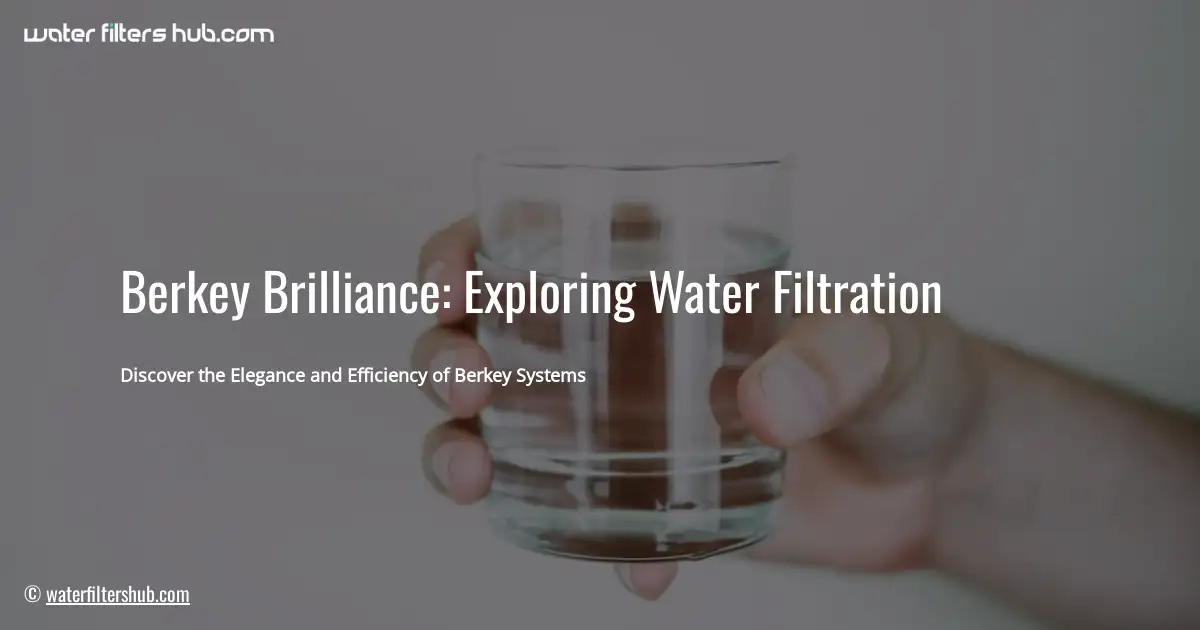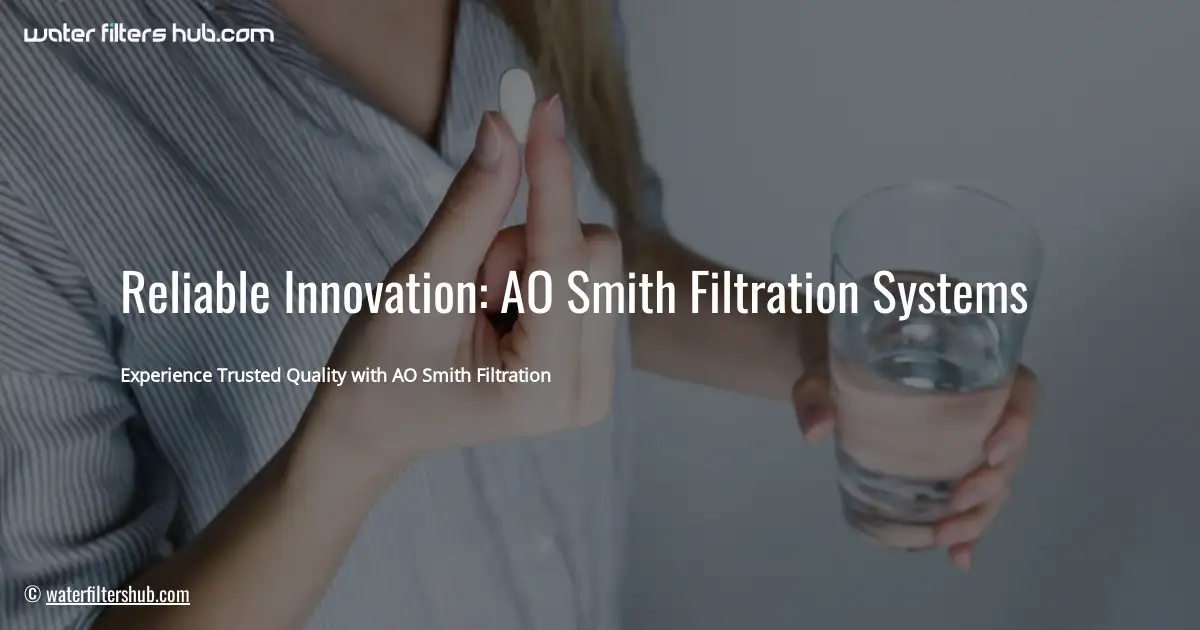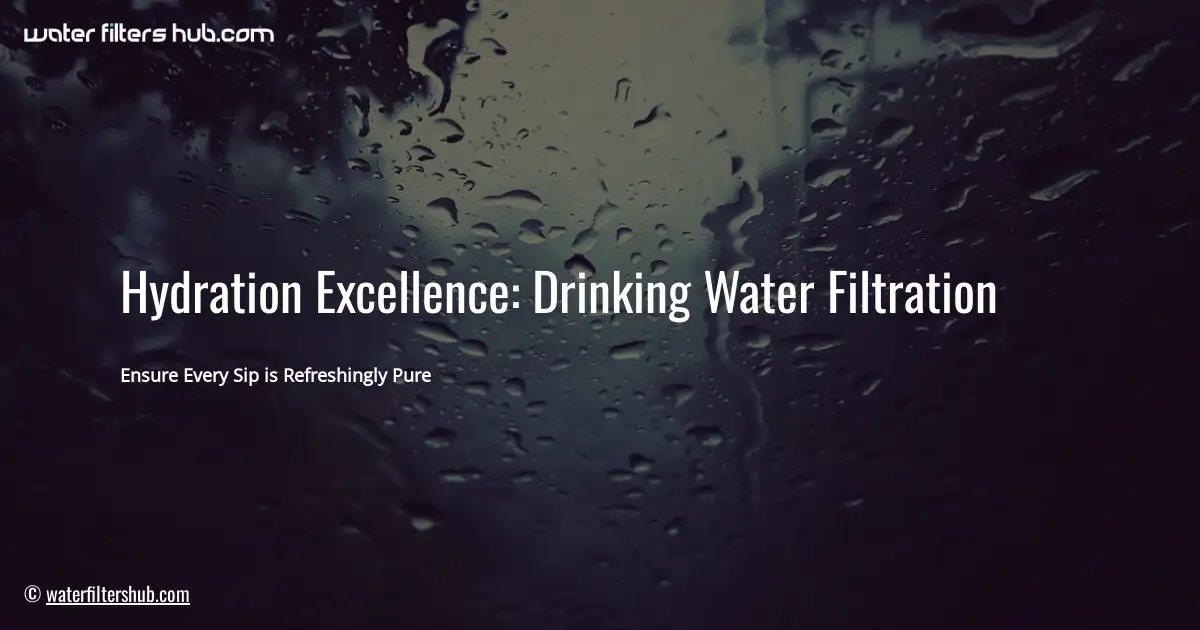Exploring Alternatives to Brita Water Filtration
Brita filters, while convenient, can leave you parched for more. They’re like the “fast food” of water filtration, offering a quick fix but not a complete solution. Brita’s filters primarily remove chlorine and sediment, leaving behind a host of other contaminants that can compromise your water’s taste, smell, and safety.
If you’re craving a truly refreshing and healthy glass of water, it’s time to venture beyond Brita. There are a plethora of water filters available that offer far superior filtration capabilities, ensuring that your water is not just clean but also delicious and safe to drink.
Understanding Water Filtration Systems 💬
Types of Water Filtration Systems 💧
When it comes to water filtration, there’s more than meets the eye! Different systems use unique methods to remove impurities, each with its own strengths and quirks. Let’s dive into the main types:
- Activated Carbon Filters: Picture a superhero sponge that traps nasty chemicals, chlorine, and bad odors. They’re a popular choice for home use, but they can’t handle heavy metals or bacteria.
- Reverse Osmosis Filters: Think of these as water detectives with a super-fine sieve. They force water through a membrane, removing almost everything, including salt, minerals, and even viruses. But they can be pricey and waste water.
- Ultraviolet (UV) Filters: These guys use UV rays to zap bacteria and viruses, leaving you with germ-free water. They’re great for well water or areas with high bacterial counts.
- Distillation Filters: Imagine boiling water and capturing the pure steam. That’s distillation! It removes everything, but it’s a slow process and can be energy-intensive.
- Alkaline Ionizing Filters: These fancy filters add minerals to your water, making it alkaline. Some claim health benefits, but the science is still debated.
Top Water Filters for Home Use 🏡
Activated carbon filters are a popular choice for home water filtration due to their effectiveness and affordability. These filters use activated carbon, a highly porous material that traps contaminants like chlorine, pesticides, and heavy metals.
Activated carbon filters are typically made of coconut shells or coal and are available in various shapes and sizes. Some filters are designed to be used in pitchers or dispensers, while others can be attached directly to your faucet. 💧
Benefits of Activated Carbon Filters:
- Removes a wide range of contaminants
- Improves taste and odor of water
- Relatively inexpensive
- Easy to install and maintain
Limitations of Activated Carbon Filters:
- Does not remove all contaminants, such as bacteria and viruses
- Can become saturated over time and need to be replaced
- May not be effective for water with high levels of certain contaminants
Activated Carbon Filters 💧
Activated carbon filters are like the superheroes of water purification, using a special material made from coconut shells or coal to trap impurities. Picture this: they’re like tiny magnets, attracting and holding onto chlorine, pesticides, and even some heavy metals. 🧲
These filters are a great choice for homes with tap water that’s not too contaminated. They’re easy to install, come in various sizes, and don’t break the bank. Plus, they can remove a wide range of contaminants without altering the water’s mineral content.
Top-Rated Activated Carbon Filters
- Culligan AC-10: Removes chlorine, sediment, and odors.
- Aquasana AQ-5300: Reduces lead, mercury, and other heavy metals.
- Brita Longlast: A budget-friendly option that lasts for up to 6 months.
Reverse Osmosis Filters 💧
Reverse osmosis (RO) filters are the gold standard of water filtration, removing up to 99% of impurities. They work by forcing water through a semipermeable membrane, leaving behind contaminants like heavy metals, pesticides, and viruses. RO filters are more expensive than other types, but they provide the most comprehensive protection.
Advantages of Reverse Osmosis Filters:
- Removes a wide range of contaminants
- Produces high-quality drinking water
- Can be used for both home and commercial applications
Disadvantages of Reverse Osmosis Filters:
- More expensive than other types of filters
- Can waste water during the filtration process
- May remove beneficial minerals from water
WHAT WATER FILTERS ARE BETTER THAN BRITA ON YOUTUBE
Ultraviolet (UV) Filters: Shining a Light on Clean Water 💡
UV filters, like tiny superheroes, wield the power of ultraviolet light to zap bacteria and viruses from your water supply. They’re like the secret agents of water purification, silently eliminating harmful microorganisms without altering the taste or pH of your H2O.
While UV filters don’t remove physical impurities like sediment or chlorine, they’re a great option for homes where bacteria or virus contamination is a concern. They’re also relatively low-maintenance, requiring only an occasional bulb replacement.
Here’s the catch: UV filters only work when the water passes directly through the UV light. So, if you’re looking for a filter that can treat water in your whole house, you might want to consider a different option. But for point-of-use applications, like under-sink or countertop filters, UV filters are a great choice for ensuring safe and sparkling water.
Distillation Filters 💧
Distillation filters are the ultimate water purification champs! 🏆 They boil water to create steam, which is then condensed back into pure H2O. 💦 This process eliminates virtually all impurities, including bacteria, viruses, heavy metals, and even fluoride.
But hold your horses! 🐎 Distillation filters come with some trade-offs. They’re typically slower and more energy-intensive than other types of filters. Plus, they remove beneficial minerals from the water, so you might want to consider adding some back in for optimal hydration. 💧
Alkaline Ionizing Filters
The Promise of Alkaline Water
Alkaline ionizing filters have become increasingly popular, promising to transform ordinary tap water into a health elixir. They claim to raise the pH level of water, making it more alkaline, which is said to have numerous health benefits. “Proponents of alkaline water tout its ability to neutralize acids in the body, boost energy levels, and even prevent diseases like cancer,” I hear you say.
However, the scientific evidence supporting these claims is mixed. While some studies suggest that alkaline water may have antioxidant properties, others have found no significant health benefits. Additionally, consuming too much alkaline water can potentially lead to health issues such as metabolic alkalosis.
Choosing an Alkaline Ionizing Filter
If you’re considering an alkaline ionizing filter, it’s important to do your research and choose a reputable brand. Look for filters that have been certified by independent organizations like NSF International or the Water Quality Association.
Remember, while alkaline water may be trendy, it’s not a magic bullet for health. A balanced diet, regular exercise, and stress management are far more effective ways to improve your overall well-being.
Whole-House Water Filtration Systems 💧
Whole-house water filtration systems offer a comprehensive solution to ensure the purity of water throughout your home. Unlike under-sink or countertop filters that treat water at a single point of use, whole-house systems purify water at its source, providing clean, filtered water to every tap, shower, and appliance in your home.
The benefits of whole-house water filtration systems are numerous:
- Improved water quality: These systems remove impurities, contaminants, and harmful substances from your water supply, resulting in cleaner, healthier water for your family.
- Protection of appliances: Hard water and impurities can damage appliances such as dishwashers, washing machines, and water heaters. Whole-house filters protect these appliances by removing scale and other deposits.
- Reduced plumbing issues: Impurities and sediment can cause clogs and leaks in pipes and fixtures. Whole-house filtration systems prevent these issues by removing particles before they enter your plumbing system.
- Peace of mind: Knowing that your entire home has access to clean, filtered water provides peace of mind and a sense of well-being.
Conclusion
Beyond Brita: A World of Water Filtration Excellence
As we’ve explored in this article, Brita filters, while convenient, may not be the best solution for everyone’s water filtration needs. The world of water filtration extends far beyond Brita, offering a vast array of options that cater to specific requirements and preferences.
From the versatility of activated carbon filters to the advanced purification of reverse osmosis systems, the choices are endless. Whether you seek to eliminate contaminants, improve taste, or enhance the health benefits of your drinking water, there’s a filter out there that can exceed your expectations.
So, let’s bid farewell to the limitations of Brita and embrace the boundless possibilities of water filtration. Explore the alternatives we’ve presented, research further, and discover the perfect filter that will transform your water into a pure, refreshing, and invigorating elixir of life.
EFFECTIVENESS OF TABLE TOP WATER PITCHER FILTERS TO REMOVE ARSENIC …
CHOOSING HOME WATER FILTERS & OTHER WATER TREATMENT SYSTEMS | CDC
WHAT WATER FILTERS CAN REMOVE PFAS
HOW GOOD ARE REFRIGERATOR WATER FILTERS
HOW MUCH ARE BRITA WATER FILTERS
HOW GOOD ARE REFRIGERATOR WATER FILTERS
HOW MUCH ARE WATER FILTERS







Leave a Reply